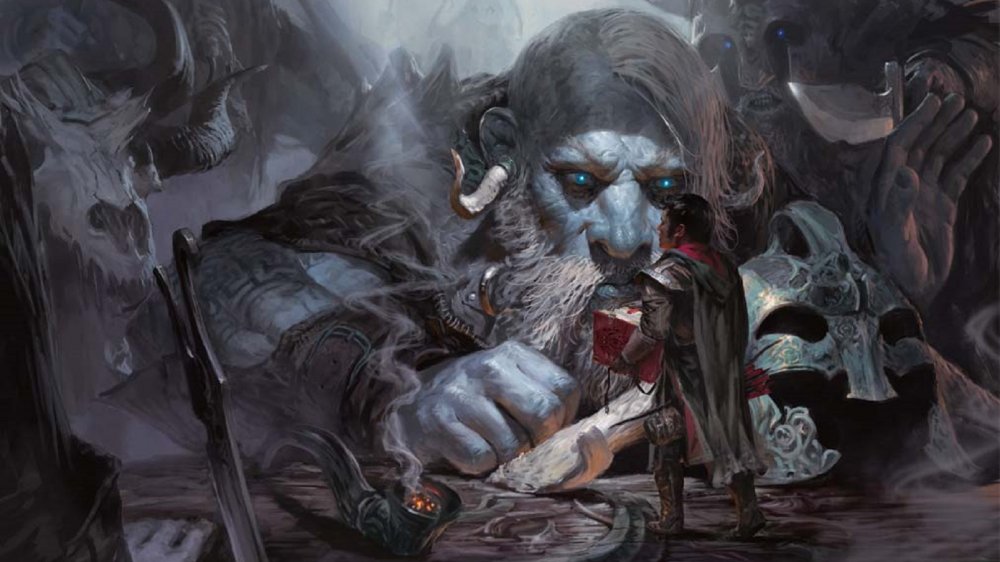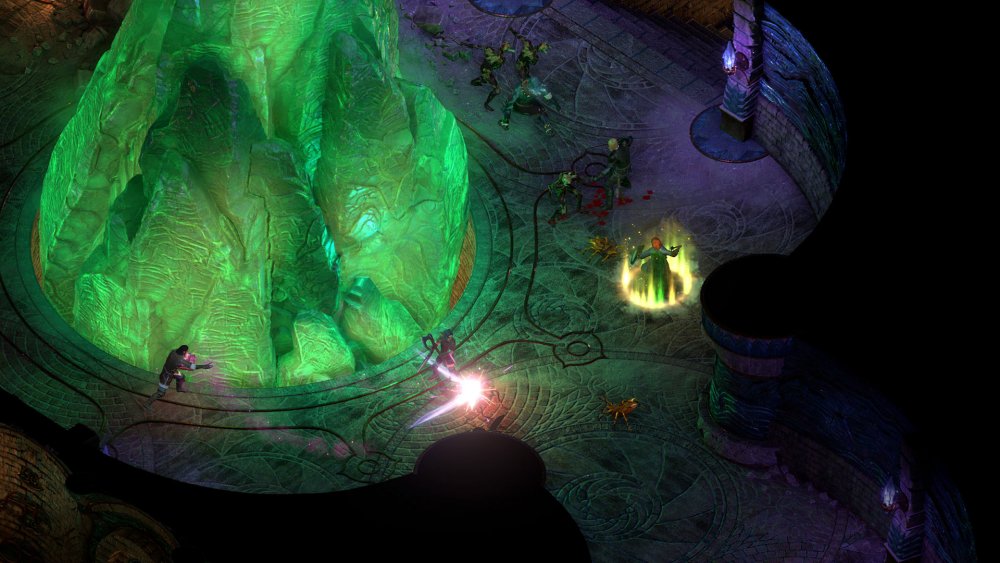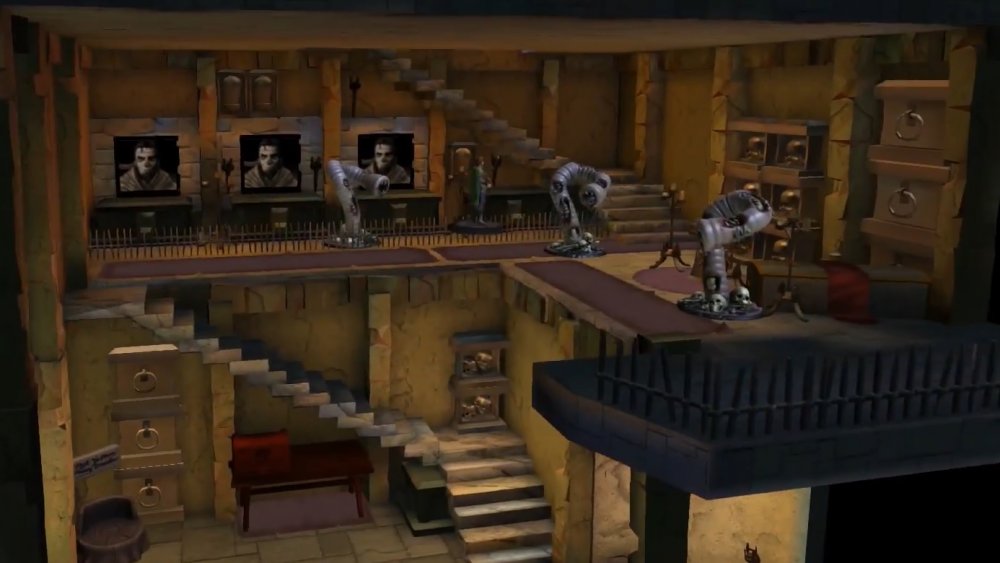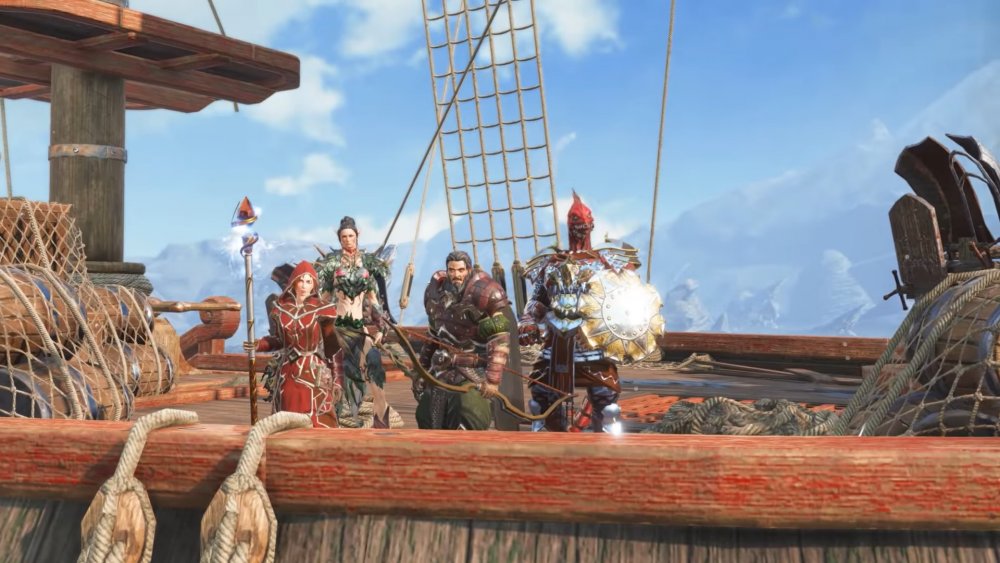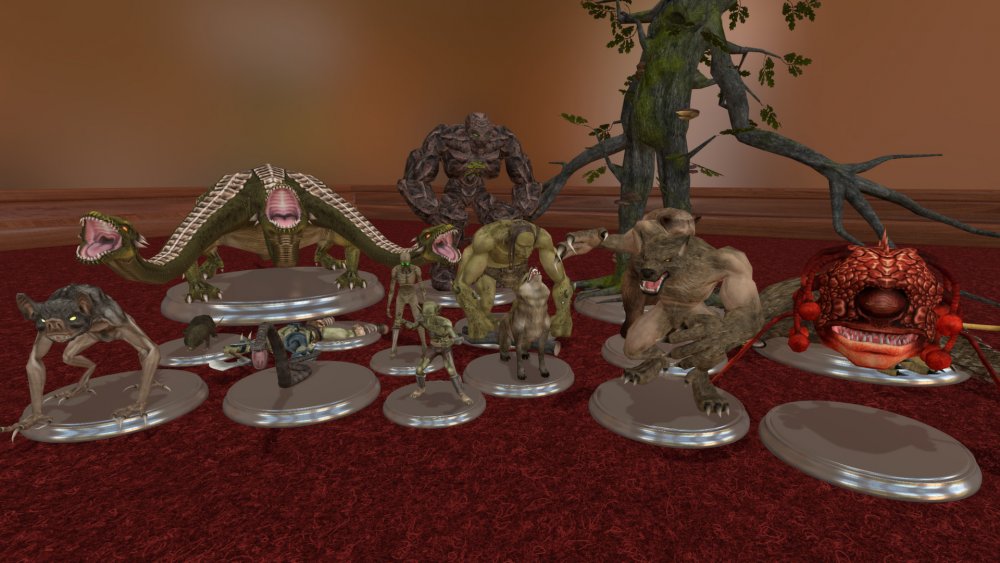The Video Games You Should Play If You Love Dungeons & Dragons
There's nothing like sitting down with friends and playing a game. Maybe your friends like Monopoly, or maybe they like charades. One game that's steadily increased in popularity, however, is Dungeons & Dragons. The imagination of creating a character, the elation of swinging for the fences with roleplay. The tactile thrill of rolling die, and the eternal fear that this next adventure might be your character's last. Few games nights are quite as enjoyable as D&Ds. But now a pandemic has made large gatherings problematic.
How will you ever get your D&D fix without huddling around a table with friends to share epic experiences, the spoils of war, and big bowls of cheetos? With video games, of course.
The video game industry is full of titles that bank on D&D. Some use the rich, high fantasy world as a springboard to create their own settings, while others try to translate the game's intricate systems and open-ended nature into digital form. And some are just licensed D&D video games. If quarantine is getting you down and you absolutely need some D&D goodness in your life, try out these video games.
Pillars of Eternity and Tyranny
Dungeons & Dragons' biggest boon is its alignment system. You don't have to play as a good guy or gal. If you want to burn down orphanages and sacrifice puppies as a chaotic evil character, you can do that in this game. However, video games don't have that luxury. No matter how many widows you assassinate or apples you steal, you will usually — if not always — end up the hero. Unless, of course, you play a game that intentionally casts you as the villain.
No matter your alignment of choice, Obsidian Entertainment has you covered. Before the studio released The Outer Worlds, it created the critically acclaimed Pillars of Eternity series and Tyranny, two isometric RPGs that are masters of storytelling and love letters to old school computer RPGs.
Both franchises feature similar mechanics such as real-time combat and the ability to talk your way out of sticky situations, but they are also two sides of the same coin. Pillars of Eternity games are longer, feature an open-ended combat system, and put you in the shoes of a god-killing hero. Meanwhile, Tyranny is shorter, includes tightly focused combat mechanics, and tasks you with passing judgement on your dictatorial Overlord's subjects.
Picking between these games is like choosing between vanilla and chocolate — you can't go wrong with either.
The Warlock of Firetop Mountain
Odds are you have read a Choose Your Own Adventure book at least once in your life. So, what do you get when you combine those books with some dice-rolling systems? The answer is Fighting Fantasy, a series of books written by the co-founders of Games Workshop (the company behind Warhammer 40K and its licenced games, such as Warhammer 40K: Darktide). The first entry in Fighting Fantasy is The Warlock of Firetop Mountain, and while that book is out of print, you can relive its adventures with a video game of the same name.
The Warlock of Firetop Mountain is a highly replayable RPG where you control one adventurer in their trek up Firetop Mountain. As you venture the mountain's winding corridors, you make life and death decisions such as which path to take. Each choice results in a new challenge, like dodging traps or fighting enemies in tactical, grid-based arenas.
Every playable character has their own set of skills, so no two adventures play out the same. Even if you pick identical paths on two playthroughs, one character might discover secrets that evade another.
Factor in The Warlock of Firetop Mountain's tabletop miniature aesthetic, and you have a dungeon crawling RPG that can keep you busy for ages.
Divinity: Original Sin 1 and 2
In video games, open-ended gameplay usually translates into going anywhere at any time. In Divinity: Original Sin 1 and 2, open-ended gameplay translates into solving problems your way, no matter how ingenious or explosively boneheaded.
The Divinity: Original Sin franchise paints a rich, novel world that is both familiar and different. The game world is filled with classic fantasy races such as orcs, elves, and dwarves, but you will be hard pressed to recognize them since elves, for instance, can eat corpses to gain new skills. Also, female elves have giraffe necks.
While the Original Sin series excels at storytelling and character dialogue, the games set themselves apart with a spell synergy system. Your allies are on fire? Target them with a jug of water to douse the flames, but if you also target your enemies, they become drenched and extra vulnerable to electricity and ice magic. But beware: Your enemies can use that tactic against you. Depending on how you trick out characters, you can charm your way through enemies, negate obstacles with magic, and talk to chickens for extra quests.
Since Divinity: Original Sin 1 and 2 let you channel creativity usually reserved for D&D sessions into tangible results, it's no wonder the developers of those titles are currently working on Baldur's Gate 3.
Tabletop Simulator
When you can't play Dungeons & Dragons in the same room as your friends, you can play with them over the internet. And now you have a huge selection of programs to choose from, the most popular being Roll20 and Fantasy Grounds. However, these games don't recreate the sensation of watching plastic miniatures hop up and down a board and stare down other miniatures in combat. That's where Tabletop Simulator comes in.
Technically, Tabletop Simulator isn't D&D themed. It isn't even D&D inspired. It is just a video game that accurately simulates the experience of playing tabletop games with friends. The game doesn't have any official D&D components or DLC, but it is full of downloadable user-made workshop items, including boards, miniatures, and spell cards.
Granted, Tabletop Simulator isn't perfect. Its physics engine can cause some in-game items to jank out, and the game is primarily designed for VR headsets and controllers. However, if you can connect with friends over the internet and download Tabletop Simulator and the necessary workshop items, you can play D&D no matter how far apart you are.

